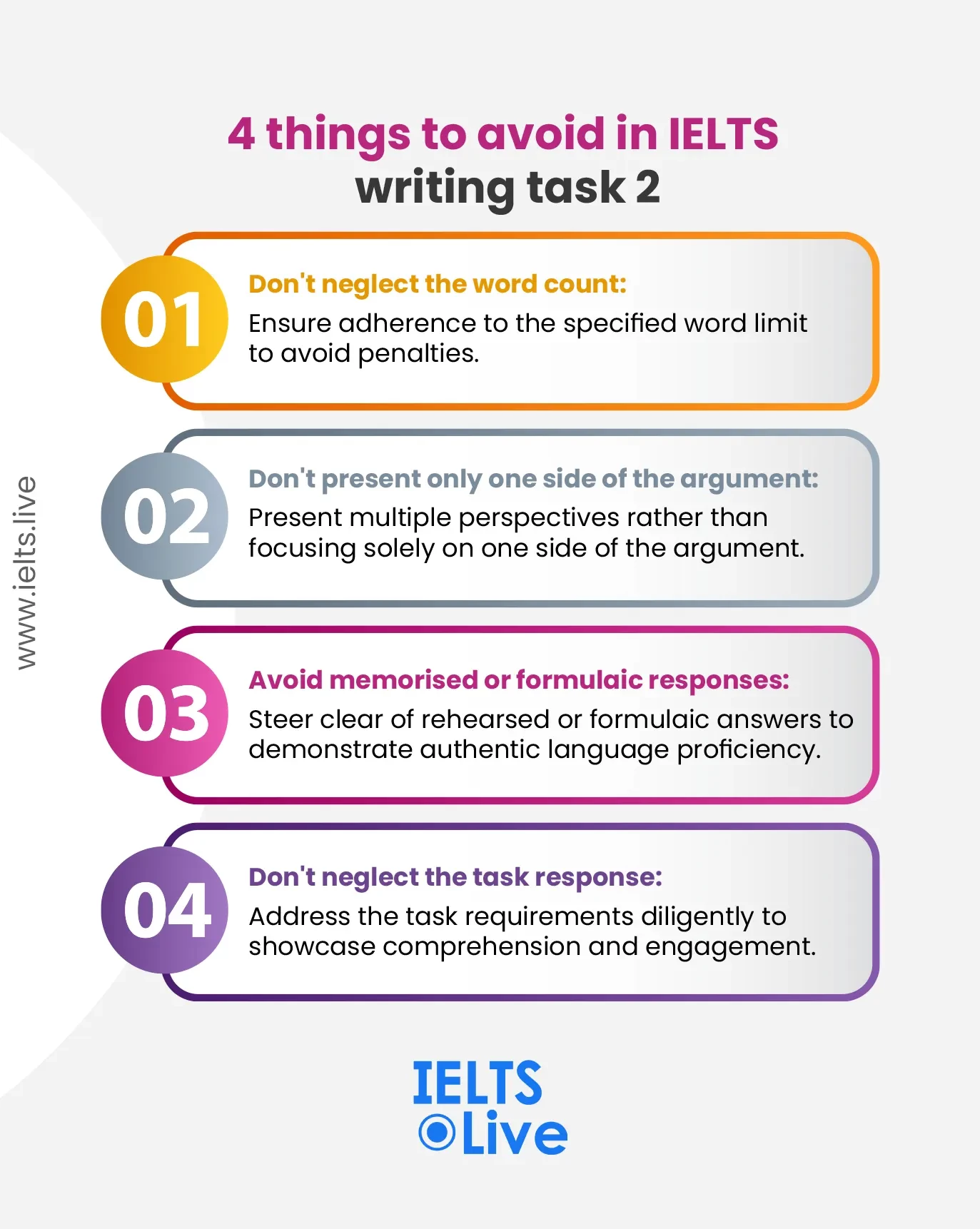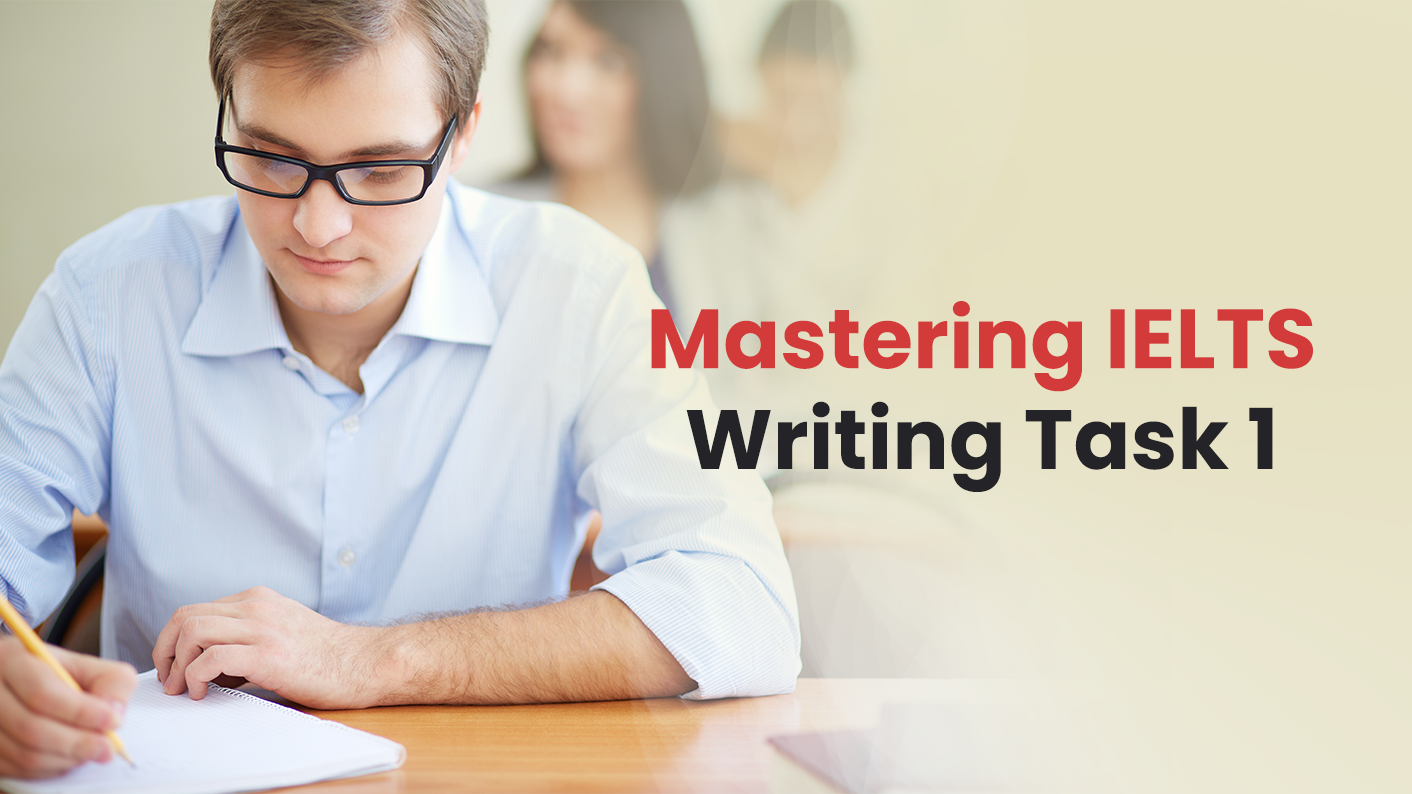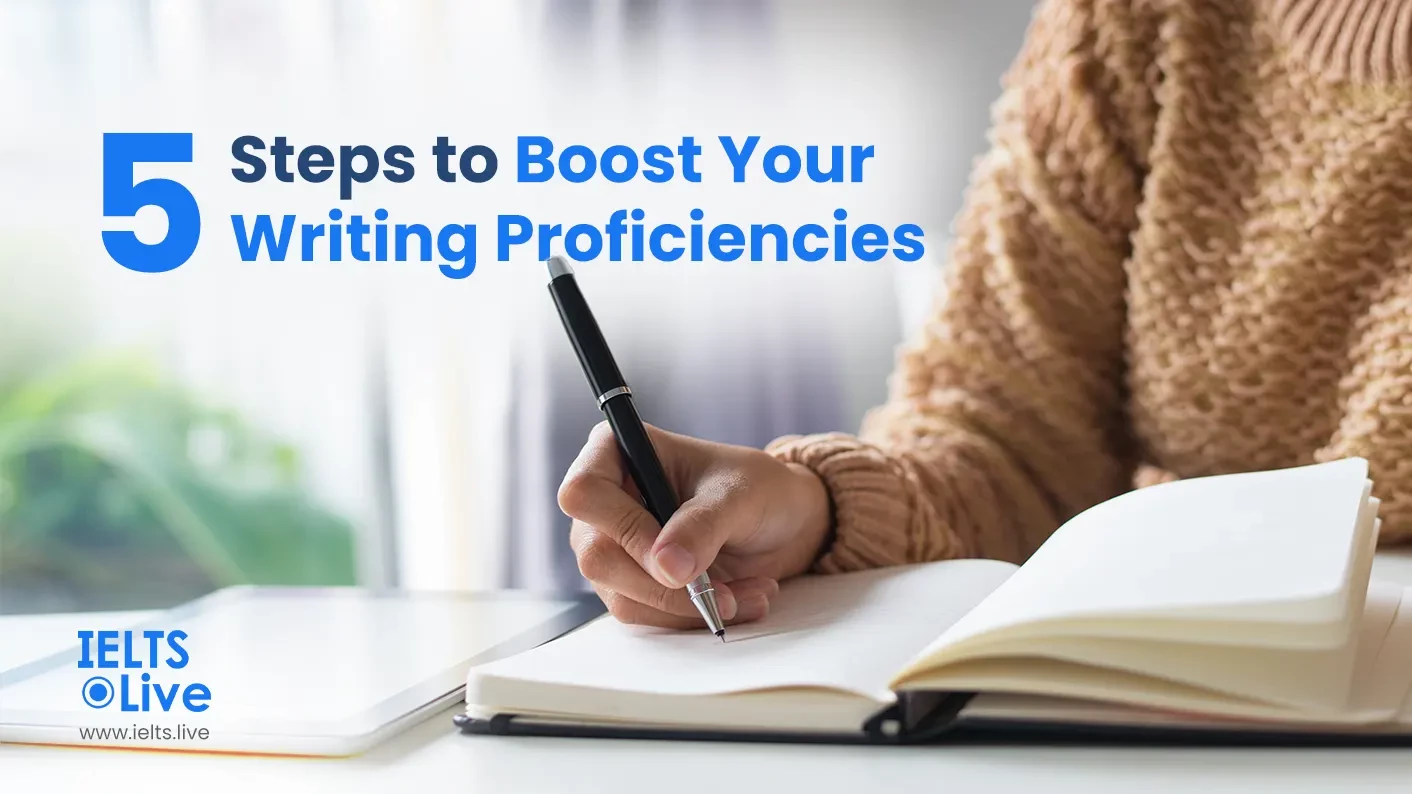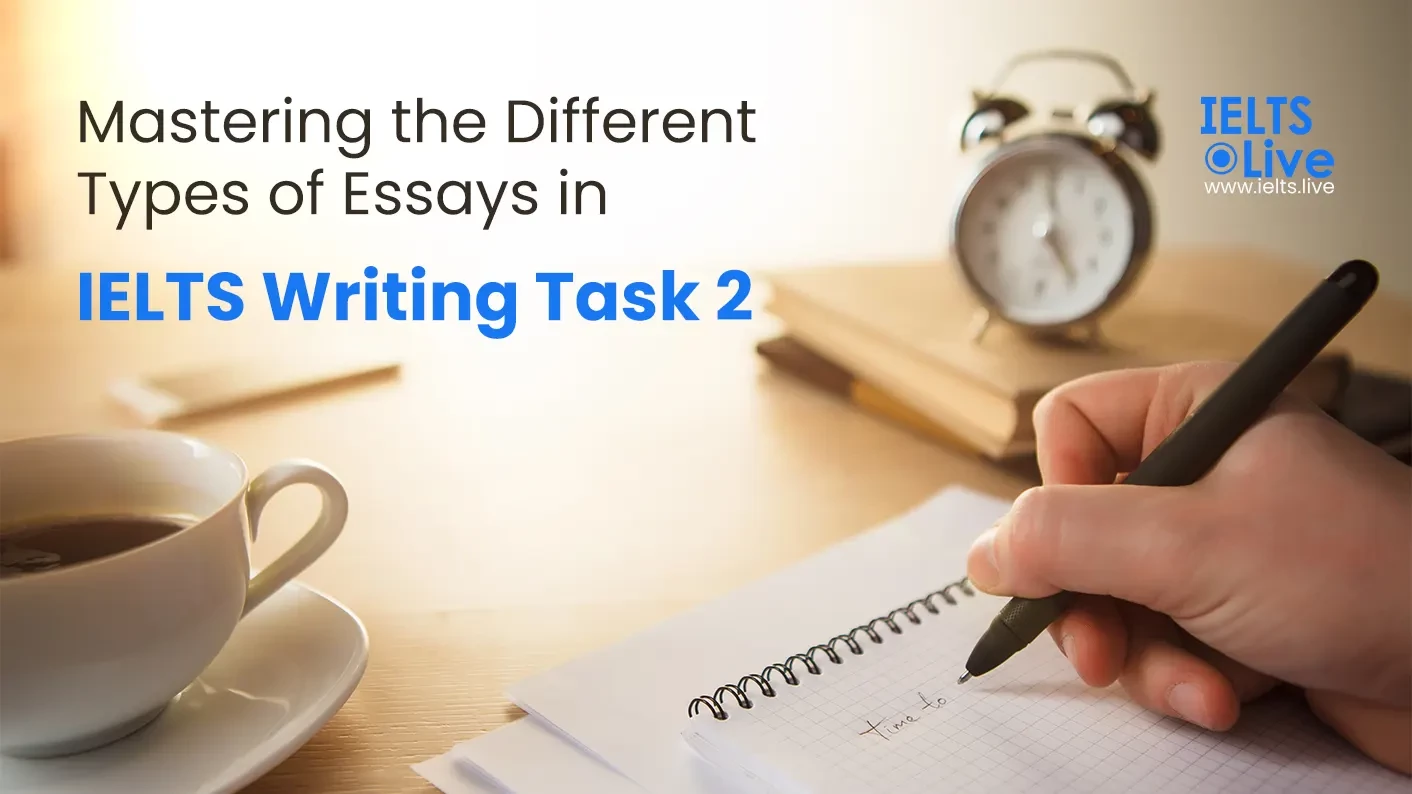
Are you aiming to achieve your highest possible score on the IELTS Writing Task 2? Then, knowing what to avoid is just as important as knowing what to do.
In this blog, we'll discuss the don'ts of IELTS Writing Task 2 to help you avoid common mistakes that could get in the way of your success.
We'll highlight the critical elements you need to be aware of, from staying within the word limit to providing a balanced viewpoint and avoiding memorised responses.
So let's explore the don'ts and prepare for the IELTS Writing exam.
You may also like: Mastering the different types of essays in IELTS writing task 2
Don't neglect the word count
- Stay within the word limit to achieve good marks: The word count is one of the most important factors to take into account in IELTS Writing Task 2. It's crucial to stay within the allotted word count, which is typically between 250 and 400 words. Even though there aren't any strict penalties for the word count in IELTS task 2, it is important that you at least write 250 words. However, it's better to focus on the quality of your writing instead of the quantity of words.
- Allocate your time effectively to allow for planning, writing, and revising within the given time frame: To make sure that you're able to write according to the word count, it is crucial to effectively manage your time while writing. It's essential to allocate enough time for planning, writing, and revising if you want to make sure your essay is worth a good band score. This will also help you to avoid rushing and producing a poorly written essay.
Don't present only one side of the argument
- Task 2 often requires you to discuss both sides of an issue before presenting your opinion: In IELTS Writing Task 2, it is important to present a balanced view when discussing a topic. Avoid focusing only on one side of an argument or giving your own opinion without taking the alternative views into account. The task typically requires you to debate both sides of an issue before presenting your own point of view. Therefore, it is essential to examine the benefits and drawbacks, as well as any opposing viewpoints on the subject. By taking a balanced approach, you demonstrate your capacity for in-depth subject analysis and coherent argumentation.
- Provide a balanced view by discussing the advantages and disadvantages of different perspectives: Let's use a social media-related writing prompt as an example. Focusing solely on social media's benefits or drawbacks would produce an unbalanced response. Instead, it's vital to consider a number of factors, including the advantages of connectivity and information sharing as well as the disadvantages of addiction and privacy concerns. By addressing both sides of the debate, you show that you have a thorough understanding of the subject and can articulate a fair viewpoint.

Avoid memorised or formulaic responses
- IELTS examiners are trained to recognize memorized answers, so strive for originality: Examiners are highly skilled at spotting memorised or formulaic responses in the IELTS Writing Task 2 section. Candidates can construct their essays more quickly by using previously learned templates or structures. However, depending too heavily on memorised or formulaic answers can hurt your overall grade.
- Develop your own ideas and express them in a coherent and cohesive manner: Examiners are seeking authenticity and originality in your writing. They're looking to see if you can analyse the subject at hand, think critically, and articulate your own viewpoints. You risk sounding robotic and lacking genuine engagement with the topic if you simply repeat memorised phrases or use a predetermined essay structure.
To avoid this, it is essential that you create your own ideas and express them in your own words. Spend some time carefully reading the prompt and generating your own ideas and opinions. This will enable you to write a truly innovative essay that demonstrates your capacity for independent thought.
For illustration, let's take a prompt about the advantages and disadvantages of technology in education. Instead of using a pre-learned essay structure that lists benefits in one paragraph and drawbacks in another, use a more nuanced approach. Discuss concrete examples, examine the subject from various perspectives, and offer evidence to back up your claims. Your ability to think critically and communicate your ideas in a clear and compelling way can be demonstrated by providing unique insights and careful analysis.
Don't neglect the task response
- Ensure that you address all aspects of the question and respond directly to what is asked: A common mistake that can seriously lower your score on IELTS Writing Task 2 is ignoring the task response. To make sure you address all the requirements of the task, you should carefully read and comprehend the prompt. Starting by examining the prompt and identifying the specific tasks or questions incorporated within it will help you avoid overlooking the task response. Divide it up into manageable chunks and think about what is being asked of you. This will make sure that you can effectively structure your essay and guarantee that you address all important points.
- Avoid going off-topic or providing irrelevant information: Keep returning to the prompt as you plan your essay to stay focused on the main theme and goals. Make sure that each paragraph contributes to addressing the specific tasks listed in the question. Be careful not to stray from the topic at hand or to include information that is unrelated to it.
For instance, if the prompt requests that you discuss both the benefits and drawbacks of living in a city, make sure you do so in a fair and balanced way. Give the benefits their own paragraph or paragraphs, with examples and explanations to back them up. Continue on to discuss the drawbacks by providing additional pertinent examples and evidence. You show that you can comprehend and meet the demands of the prompt by responding to every part of the task.
To sum up, you can write a powerful and genuine essay for IELTS Writing Task 2 by avoiding memorised or formulaic responses and remaining focused on the task requirements. Showcase your ability to think critically and enhance engagement with the topic by coming up with your own ideas and putting them into your own words. Never forget to thoroughly examine the prompt, list the specific tasks, and make sure that each paragraph helps you address those tasks. You can increase your chances of passing the IELTS exam with a higher score by doing this.










0 COMMENTS